 W
WMaria Luís Albuquerque is a Portuguese politician. She served as Minister of State and Finance between 2013 and 2015.
 W
WAntónio José de Almeida, GCTE, GCA, GCC, GCSE, son of José António de Almeida and his wife Maria Rita das Neves, was a Portuguese political figure. He served as the sixth President of Portugal from 1919 until 1923.
 W
WAntónio José de Ávila was a Portuguese politician, minister of the kingdom, mayor of the city of Horta, on the island of Faial, in the Azores, Civil Governor of the same, Peer-of-the-Realm, Minister of State, and later Ambassador to Spain.
 W
WAntónio José de Castro Bagão Félix is a Portuguese economist and politician.
 W
WTomé José de Barros Queirós was a Portuguese trader, capitalist and politician of the period of the Portuguese First Republic. Among others posts, he served as member of the parliament, Minister of Finances and eventually President of the Ministry. He was also a member of the Masonry.
 W
WAnselmo José Braamcamp de Almeida Castelo Branco was a Portuguese politician of the Constitutional Monarchy era. He was the leader of the Historic Party, Minister of the Kingdom and, between 1879 and 1880, Head of Government.
 W
WHenrique Medina Carreira was a Portuguese jurist and financial expert who served as Minister of Finance from 1976 to 1978.
 W
WÁlvaro Xavier de Castro was Prime Minister of Portugal from 20 November to 30 November 1920 and from 18 December 1923 to 6 July 1924.
 W
WAníbal António Cavaco Silva, GCC, GColL is a Portuguese economist who served as the 19th President of Portugal, in office from 9 March 2006 to 9 March 2016. He had been previously Prime Minister of Portugal from 6 November 1985 to 28 October 1995. His 10-year tenure was the longest of any prime minister since António de Oliveira Salazar, and he was the first Portuguese prime minister to win an absolute parliamentary majority under the current constitutional system. He is best known for leading Portugal into the European Union.
 W
WMário José Gomes de Freitas Centeno is a Portuguese economist, university professor, and politician. Since 2015, he has been Minister of Finance in the government of Prime Minister António Costa of Portugal. He was the president of the Eurogroup and chairman of the board of Governors of the European Stability Mechanism from 2018 to 2020. Previously, he was a board member economist of the Bank of Portugal. On 9 June 2020, he announced his resignation from the Ministry of Finance, effective 15 June.
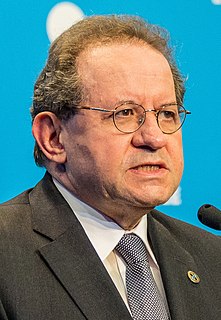 W
WVítor Manuel Ribeiro Constâncio, GCC, GCIH is a Portuguese economist who served as Vice President of the European Central Bank from June 2010 until May 2018. He served as Governor of the Bank of Portugal from 2000 to 2010.
 W
WAfonso Augusto da Costa, GCTE, GCL was a Portuguese lawyer, professor and republican politician.
 W
WGeneral Artur Ivens Ferraz, was a Portuguese military officer and politician. He served in the Portuguese Expeditionary Force during the Portuguese participation in World War I, in France. He was later Governor-General of Portuguese Mozambique, and was Minister of Trade, Colonies and Finances. He also served as Prime Minister from 8 July 1929 to 21 January 1930. He later occupied the post of general administrator of the Army and head of the Armed Forces.
 W
WMaria Manuela Dias Ferreira Leite GCC GCIH, commonly known as Manuela Ferreira Leite, is a Portuguese economist, pundit and retired politician.
 W
WJosé Dias Ferreira, GCTE was a Portuguese lawyer, politician and jurist, son of António Ferreira Dias and wife Bernarda Pereira de Vasconcelos.
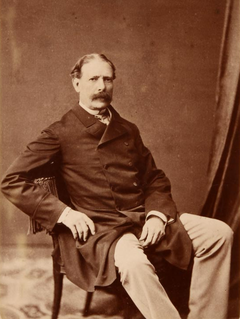 W
WAntónio Maria de Fontes Pereira de Melo GCTE KGF was a Portuguese statesman and engineer. He was a leading parliamentarian and political figure of his time. Among other posts held, he was six times Minister of Finance and Minister of Public Works. From 1871 to 1886, he served three times as Prime Minister of Portugal, for a total of 11 years.
 W
WJoão Franco Ferreira Pinto Castelo-Branco, GCTE ([ʒuˈɐ̃w̃ ˈfɾɐ̃ku]; was a Portuguese politician, minister, 43rd Minister for Treasury Affairs and 47th Prime Minister.
 W
WJosé Vicente de Freitas, 2nd Baron of Freitas GCTE was a Portuguese military officer and politician.
 W
WVítor Louçã Rabaça Gaspar, GCIH is a Portuguese economist and former politician, who served as Minister of Finance and Minister of State from 21 June 2011 until his resignation on 2 July 2013.
 W
WHenrique de Barros Gomes, was a Portuguese politician, member of the Progressive Party, who assumed the functions of director of the Bank of Portugal, Minister of various Ministries during Regeneration Era politics and member of the Geographic Society of Lisbon, as well as diverse national and international awards of merit. He was noted for his role during the colonial crisis associated with British Ultimatum.
 W
WAntónio Joaquim Granjo was a Portuguese lawyer and politician.
 W
WVitorino Máximo de Carvalho Guimarães was a Portuguese economist and politician. He was the son of João Antunes de Sousa Guimarães and Amélia Augusta de Carvalho. He entered the School of the Army in 1901, graduating as official of military administration and initiating a career that united a passage in the area of the military administration. He integrated committee to after militate bred for the announcement of the Republic and its implantation. In 1911 he was elected member of the house of representatives to the Constituent Congress, for the electoral circle of Bragança. In 1925, he became Prime Minister of one of the governments of First Portuguese Republic.
 W
WJoão Rodrigo Reis Carvalho Leão is a Portuguese economist, university professor, and politician. He currently serves as Minister of Finance in the government of Prime Minister António Costa of Portugal, sworn in on 15 June 2020.
 W
WDuarte Leite Pereira da Silva, GCC, was a Portuguese historian, mathematician, journalist, diplomat and politician. He graduated in Mathematics at the University of Coimbra, in 1885. He taught at the Politecnic Academy of Porto, from 1886 to 1911. Meanwhile, he was also the director of the newspaper diary "A Pátria". As a historian, he published many studies, later compiled in "História dos Descobrimentos", in 2 volumes.
 W
WJosé Jorge Loureiro was a Portuguese soldier and politician at the time of the monarchy.
 W
WGuilherme Valdemar Pereira de Oliveira Martins is a Portuguese lawyer and politician. His great-great-great uncle was Joaquim Pedro de Oliveira Martins.
 W
WJosé Mendes Cabeçadas Júnior, OTE, ComA, commonly known as Mendes Cabeçadas, was a Portuguese Navy officer, Freemason and republican, having a major role in the preparation of the revolutionary movements that created and ended the Portuguese First Republic: the 5 October revolution in 1910 and the 28 May coup d'état of 1926. In the outcome he became the 69th Minister of Finance for one day only on 30 May 1926, then becoming interim Minister for Foreign Affairs for two days between 30 May and 1 June, after which he again became the 70th Minister for Finance on the same day. He served as the ninth President of the Republic and Prime Minister for a brief period of time.
 W
WJoaquim Pina Moura was a Portuguese politician and economist. He was a member of the Socialist Party.
 W
WLuís da Silva Mouzinho de Albuquerque was a Portuguese military officer, engineer, poet, scientist and politician, who distinguished himself during the Liberal Wars and in the conflicts that marked Portugal's history in the first half of the 19th century. He served as the Minister of the Kingdom during the liberal regency of Pedro of Braganza. This was the most prominent post inside the government at that time, which made him the Prime Minister of Portugal in all but name. He was also several times minister and deputy minister during the Constitutional Monarchical period. Among other offices, he served as Chief of the National Mint, captain-general and governor of Madeira, and inspector-general of public works. He was the grandfather of Joaquim Augusto Mouzinho de Albuquerque, a military officer and colonial administrator.
 W
WJoão Gualberto de Oliveira was a Portuguese politician. He was also the 1st Baron and later the 1st Count of Tojal.
 W
WJoaquim Pedro de Oliveira Martins was a Portuguese politician and social scientist. He was a writer, a deputy, a minister; he became the 47th Minister for Treasury Affairs on 17 January 1892.
 W
WSidónio Bernardino Cardoso da Silva Pais was a Portuguese politician, military officer, and diplomat, who served as the fourth President of the First Portuguese Republic in 1918. One of the most divisive figures in modern Portuguese history, he was referred to by the writer Fernando Pessoa as the "President-King", a description that stuck in later years and symbolizes his regime.
 W
WD. Pedro de Sousa Holstein, 1st Duke of Faial and Palmela was one of the most important Portuguese diplomats and statesmen in the first half of the 19th century. He also served as the country's first modern Prime Minister.
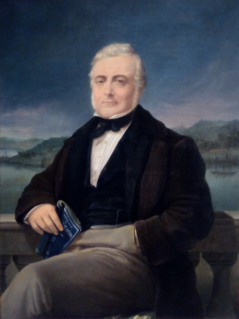 W
WManuel da Silva Passos was a Portuguese jurist and politician, one of the most notable personalities of 19th-century Portuguese Liberalism. He is more commonly referred to as Passos Manuel, due to the way he was addressed in Parliament, where members were announced by their surname — "Manuel" being apposed to his surname in order to distinguish him from his brother, José da Silva Passos, who was also a member of Parliament.
 W
WJoaquim Pereira Pimenta de Castro, 10th Count of Pimenta de Castro was a Portuguese army officer and politician. He was a career military officer reaching the position of General, also graduated in Mathematics by the University of Coimbra. In 1908, he was nominated commander of the 3rd Military Region, in Porto. After the proclamation of the Republic on 5 October 1910, he was Minister of War, for only two months, in 1911. He had to resign due to the monarchist incursion of Henrique de Paiva Couceiro. An independent, he was chosen by President Manuel de Arriaga to be the President of the Ministry of a government, who would rule without the parliament, where the Portuguese Republican Party, led by Afonso Costa had the majority. His government, with the support of the moderate Evolutionist Party and the Republican Union, and also conservative military factions, was in office from 28 January to 14 May 1915. It was overthrown by the military movement of 14 May 1915, supported by the Republican Party, which also caused the resignation of President Manuel de Arriaga.
 W
WLiberato Damião Ribeiro Pinto ComTE, ComC, ComA, ComSE, was a Portuguese Lieutenant Colonel of the Republican National Guard, politician and President of the Ministry of one of the governments of the Portuguese First Republic. He was the Portuguese head of government for a short time from 1920 to 1921 and the 44th Minister of Finance of Portugal from 22 February 1921 until 2 March 1921.
 W
WJosé Maria de Mascarenhas Relvas de Campos (Golegã, Golegã, 5 March 1858 – Alpiarça, Casa dos Patudos, 31 October 1929; [ʒuˈzɛ ˈʁɛɫvɐʃ], was a Portuguese politician and 70th Prime Minister of Portugal.
 W
WErnesto Rodolfo Hintze Ribeiro was a Portuguese politician, statesman, and nobleman from the Azores, who served as Prime Minister of Portugal three times, during King Carlos I's reign.
 W
WBernardo de Sá Nogueira de Figueiredo, 1st Marquess de Sá da Bandeira was a Portuguese nobleman and politician. He served as Prime Minister of Portugal for five times. He was the most prominent Portuguese defender of the abolition of slavery in Portugal and its domains.
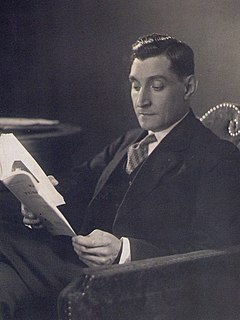 W
WAntónio de Oliveira Salazar was a Portuguese economist who served as the prime minister of Portugal from 1932 to 1968. He was responsible for the Estado Novo, the corporatist authoritarian government that ruled Portugal until 1974.
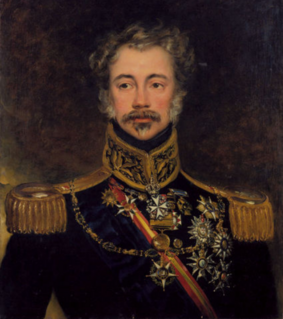 W
WJoão Carlos Gregório Domingos Vicente Francisco de Saldanha Oliveira e Daun, 1st Duke of Saldanha, was a Portuguese marshal and statesman.
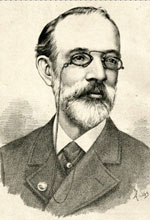 W
WAntónio de Serpa Pimentel was Prime Minister of Portugal from 14 January to 11 October 1890. His term in office began as a reaction to the British ultimatum concerning Portuguese colonial policy in southeast Africa. The signing of the "Treaty of London" later that year, which was intended as a step to resolve the crisis, was viewed as further appeasement of a powerful Britain. This led to his resignation and the fall of his government.
 W
WAntónio Maria da Silva, GCTE was a Portuguese politician. An engineer, he was a prominent member of the Portuguese Republican Party. He was Prime Minister for four times, during the Portuguese First Republic. After his party victory in the legislative elections of 8 November 1925, he was invited to form government. He led a great campaign against President Manuel Teixeira Gomes, that forced him to resign. He would be the last Prime Minister of the 1st Republic, resigning two days after the 28 May 1926 military movement.
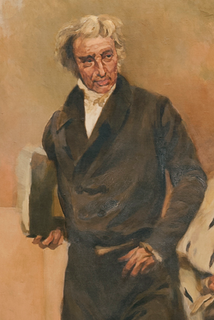 W
WJosé Xavier Mouzinho da Silveira was a statesman, jurist and Portuguese politician, as well as one of the most important personalities of the Liberal Revolution of 1820, responsible for legislation and administrative reforms that shaped Portuguese institutions, taxation and justice in the period after the Constitutional Charter. Imprisoned after the Abrilada, he became one of the most uncompromising defenders of the Charter, remaining in exile for several years after 1828, and only returning in 1834 to defend his legislative agenda, exiling himself once again in 1836. In the final ten years of his life, Mouzinho da Silveira retired from public life, before his untimely death.
 W
WAntónio Teixeira de Sousa, 2nd Count of Sousa Palmela was a Portuguese medical doctor and politician during the Constitutional Monarchy. He graduated in Medicine at the University of Porto, in 1883. A member of the conservative Regenerator Party, he was first elected to the Chamber of Deputies, in 1889. He was later minister of the Navy and Overseas (1900–1903), and, twice, of Finance. He became President of the Council of Ministers on 26 June 1910, and would be the last Prime Minister of the Constitutional Monarchy as King D. Manuel II was overthrown by a republican revolution on 5 October 1910. He left politics after the republic proclamation, but showed a moderate support for the new regime.
 W
WJoão Tamagnini de Sousa Barbosa, commonly known as João Tamagnini Barbosa, or Tamagnini Barbosa, was a Portuguese military officer and politician of the Portuguese First Republic (1910–1926). He served as Minister of Interior, Colonies and Finances during the period known as "New Republic", after the coup d'état of the National Republican Party and the semi-dictatorial government of President/Prime Minister Sidónio Pais, followed by a brief participation in the provisional government of João do Canto e Castro after the assassination of Sidónio Pais.
 W
WFernando Teixeira dos Santos, GOIH is a Portuguese economist and professor. He was Minister of Finance in the Portuguese Government led by José Sócrates.
 W
WFrancisco Salgado Zenha, GCL was a Portuguese left-wing politician and lawyer.